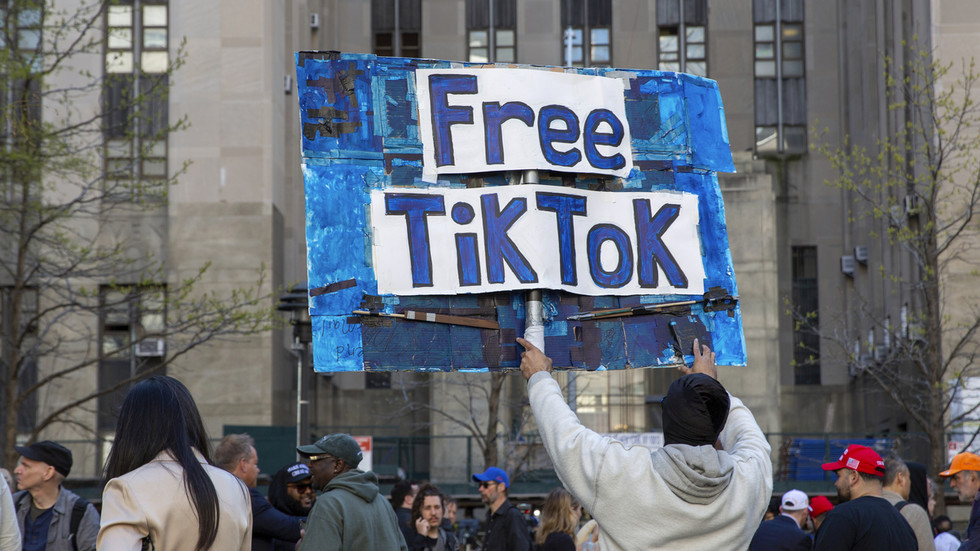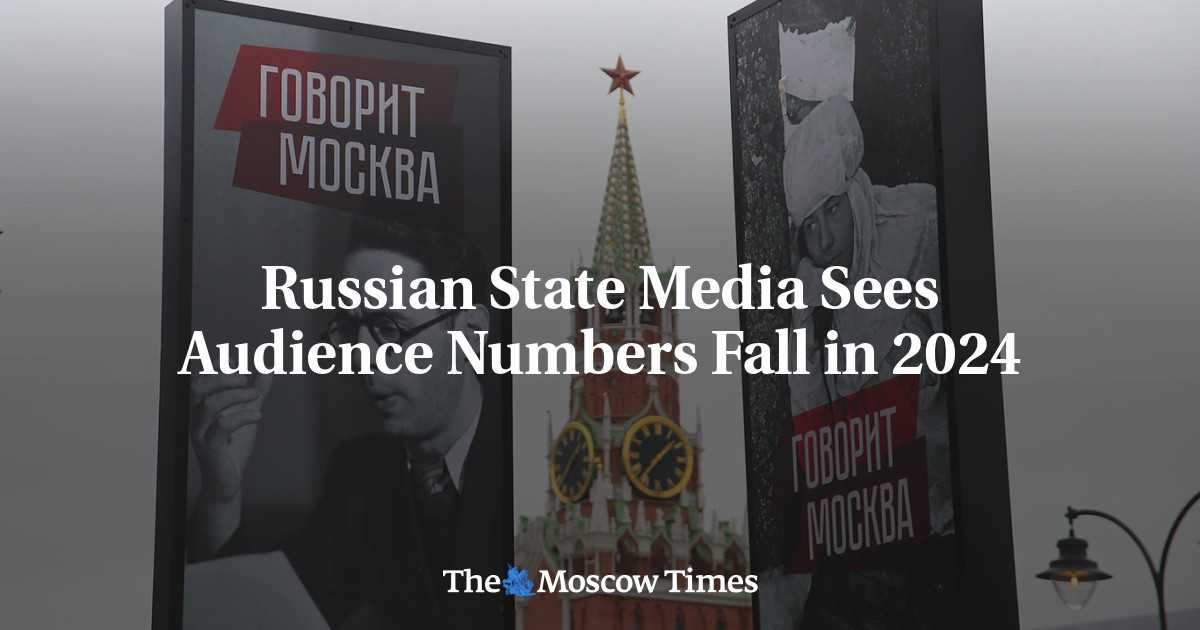Facing platform restrictions at home, creators find freedom abroad, migrating to apps beyond Washington’s sphere of influence
Ni hao, American censorship refugees!
As the US Supreme Court weighs a TikTok ban, American users are sticking it to Uncle Sam by digitally migrating en masse to China and out of reach of their own government.
The judgment is expected any day now, and it could mean that the popular online app will no longer be available for new downloads in the US. In the absence of workarounds, it also means that Washington succeeds in censoring an online platform over which it has no control. And that’s clearly the issue, as lawmakers have long been pressuring the Chinese parent company, ByteDance, to sell off its American operations to a US entity, effectively handing over control of user data to the US in order to avoid the ban – which the company has so far refused to do.
Are we seriously supposed to believe that data held by an American company is in safer hands, as lawmakers want us to believe? There’s an easy litmus test to answer that. Would you be more willing to hand over all of your personal information to your own government, which has full jurisdiction over every aspect of your life – or, alternatively, to a government on the other side of the planet?
In any case, American TikTokers have already made up their minds. The app is now rife with videos of them packing their bags for their “digital migration” to a different Chinese platform – RedNote (known in China as Xiaohongshu). These self-described “TikTok refugees” have been in the process of saying their goodbyes with tributes to their “personal Chinese spies” in TikTok videos, including some made with artificial intelligence, showing them doing things like scrolling on their phone and wandering around making videos for TikTok while a Chinese “spy” dressed in a military-style uniform laughs and cries along with them. Or sits at the table with them on a restaurant patio while they film their food. Or smiles while they’re hanging out with buddies at the bar and taking group selfies. Or sits on a lounge chair on a beach while their “American target” films their beachside vacation antics.
Apparently Chinese RedNote users have been bonding with the new arrivals, who reportedly now number at least 700,000 at last count, teaching them Mandarin Chinese and helping them navigate the platform, while the TikTokers are already helping them with their English to help weather the migratory tsunami. Some RedNote users are already reporting that it’s now considered rude to post videos without captions generated by artificial intelligence in the language other than the one spoken in the video.
TikTokers are also encouraging everyone they know to delete all US-owned Meta platforms, like Instagram and Facebook, suggesting that the timing of founder Mark Zuckerberg’s announcement that he’s loosening some of the more glaring censorship of swear words and tranny-skeptic rhetoric is suspicious, and little more than a ploy to get them to migrate to those Washington-linked platforms. They’re not buying it.
It’s no wonder, when anyone can run their own test on Facebook and see that controversial or previously banned content still appears to be shadowbanned or demoted by Meta’s algorithm. So now these TikTokers are giving Zuck the single-digit salute and electronically migrating to China to show their dedication to American free speech values – something that they clearly feel that the Supreme Court and lawmakers are failing to uphold.
Yep, you read that right. They feel that in order to avoid online censorship shaped by Washington, they’d rather trust Chinese platforms. “RedNote’s algorithms do more than recommend content – they shape perceptions,” writes a Forbes contributor, in noting the migration, citing the “quiet removal” of discussion about issues like “the Chinese government’s role in internet regulation.”
Yeah, well, guess what the Chinese government probably won’t be censoring? Criticism of Washington or its actions. What would RedNote do if the FBI called them up, like it did Facebook, according to Zuckerberg, and pressured them to censor “Russian disinformation” like the Hunter Biden laptop story, which actually turned out to be legit? Or if the White House made a call to China to flip out over something on their platform that they didn’t like? “I mean basically these people from the Biden administration would call up our team and like scream at them and curse, and it’s like… these documents are, it’s all kind of out there,” Zuckerberg said on a recent podcast about the Covid-19 debate that the administration was determined to control with an iron fist across the online landscape within their jurisdiction.
The Chinese would tell Western establishment authoritarians to screw off. Which makes it the ideal place for free dissident expression for Westerners in the same way that Russian media outlets have become popular platforms for Westerners looking to freely address controversial issues that risk getting censored at home for violating the principles of establishment-enforced groupthink.
But the US Supreme Court has already hinted that they see things quite differently, mostly favoring the national security argument over the free speech one in the TikTok case.
Justice Brett Kavanaugh said during arguments earlier this month that US lawmakers “were concerned that China was accessing information about…tens of millions of Americans, including teenagers, people in their twenties” and that they could use it “to blackmail…people who a generation from now will be working in the FBI or the CIA or in the State Department.” Just picture it. The year is 2045. A Chinese spy calls up a potential future director of the CIA or FBI and whispers, “You sure you want to proceed? I have a copy here of you lighting your farts on fire in a TikTok video 20 years ago.”
What proof do they have that China actually cares more about collecting Americans’ data than the CIA does? Seems that any given country would have much more interest in the data of its own citizens, in the interests of control and crackdowns to protect status quo and domestic power structure. And you’d have to be hopelessly naive to think that the US is an exception.
“The [US Intelligence Community] currently acquires a significant amount of [commercially available information] for mission-related purposes, including in some cases social media data,” according to a partially declassified report by a senior advisory group on commercial information prepared for the Director of National Intelligence in January 2022. “It can be misused to pry into private lives, ruin reputations, and cause emotional distress and threaten the safety of individuals. Even subject to appropriate controls, [it] can increase the power of the government’s ability to peer into private lives to levels that may exceed our constitutional traditions or other social expectations,” the report said, clearly referring to the US government.
Not that they’d ever abuse their power. Because the intelligence community is full of rule abiders. “What’s the cadet motto at West Point? You will not lie, cheat, or steal, or tolerate those who do. I was the CIA director,” said Mike Pompeo in 2019. ”We lied, we cheated, we stole. It’s – it was like – we had entire training courses. It reminds you of the glory of the American experiment.”
How charming. Guess TikTokers are dancing off to Online China because they aren’t really interested in sticking around to bask in the “glory” of the Western establishment’s digital thought police experiment, just because Zuck and his ilk are suddenly making a big deal of easing up a bit on the draconian hall monitoring.
The statements, views and opinions expressed in this column are solely those of the author and do not necessarily represent those of RT.

 By Russia Today | Created at 2025-01-15 21:55:14 | Updated at 2025-01-16 00:50:36
2 hours ago
By Russia Today | Created at 2025-01-15 21:55:14 | Updated at 2025-01-16 00:50:36
2 hours ago











